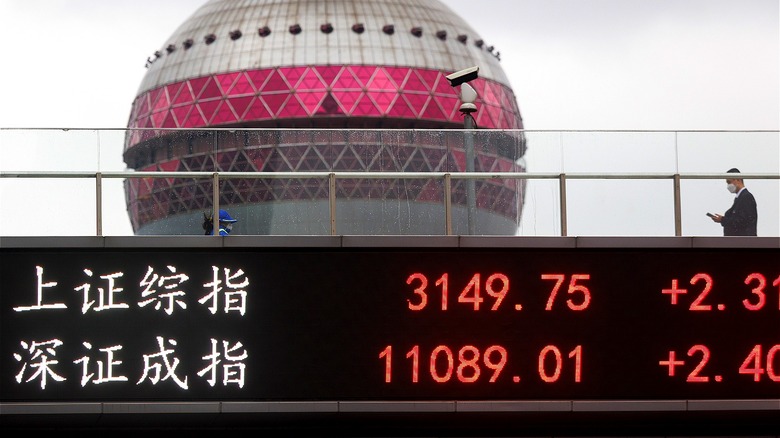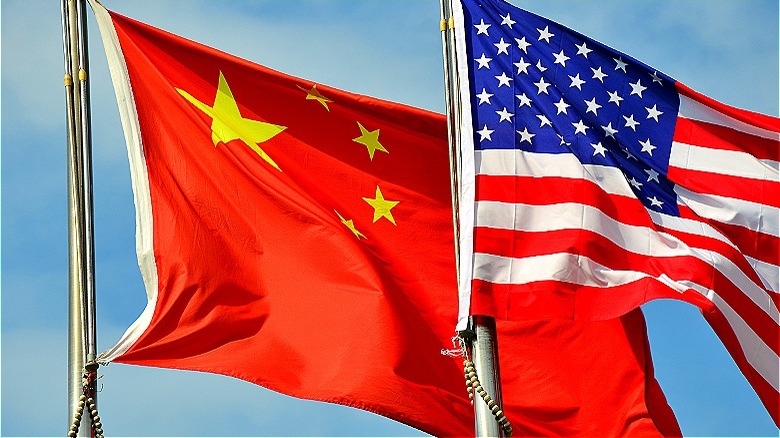Does Investing Work The Same In China?
Whether you've dabbled in the stock market or have only ever read about how stocks work (and what controls stock prices), you might find yourself wondering if stock markets operate the same in other countries. In particular, you might wonder how stock markets operate in other large economic power-player countries such as China. For starters, it's important to realize that China, while a significantly older country than the United States, has a relatively young stock market.
China's oldest exchange, the Shanghai Stock Exchange (SSE), dates back to June 1866. However, the rise of Communism shuttered it nearly 85 years later in 1950. A notable exception to this halt in Chinese stock trading is found in Hong Kong. Not only has Hong Kong historically operated as a politically autonomous city-state, separate from the same restrictions typically imposed on mainland China, but it has also operated its own stock exchange, the Hong Kong Stock Exchange (HKG) since 1891. However, in the 1990s, things in mainland China changed. HKG began listing large state-owned Chinese enterprises, and the SSE was reopened alongside a brand new stock exchange, the Shenzhen Stock Exchange (SZSE).
While the number of listed companies across China's three exchanges rivals the New York Stock Exchange (NYSE) and the Nasdaq, U.S. stock exchanges are worth significantly more money across both market capitalization and the value of share trading. Plus, poor post-COVID stimulus decisions have further hurt China's stock values in recent years, with Chinese stocks among the worst performers in the entire world in 2023.
Significant differences between countries
Perhaps the most important difference between U.S. stock exchanges and those in China is the fact that U.S. stock markets are heavily interconnected with the country's economy at both an individual and corporate level, whereas Chinese exchanges are not. While this helps China's economy remain protected from the volatility of the stock market (here's more on the worst day in U.S. stock market history), it also means domestic businesses are limited in their ability to raise capital through equity financing. Instead of equity, Chinese corporations rely on debt financing and retained earnings.
The market's lack of influence on the economy is partially due to the newer introduction of several of China's exchanges, as well as the limitations on who, exactly, can participate in their markets. For the most part, most of China's stocks had been limited to Chinese investors. However, more recently, this has begun to change. In 2019, the Chinese government got rid of two equity investment limits for foreigners, allowing mainland China stock (A-shares) to become available to foreign investors.
As Min Liangchao, a strategist at HSBC Jintrust Fund Management in Shanghai, explained to the South China Morning Post at the time, "The move is an important measure that China has taken to further open up the financial markets. In the long run, it will attract more overseas funds to the A-share market. It's a positive move, either in terms of increasing liquidity or further establishing the value investing concept." Similarly, in 2022, Hong Kong stocks (H-shares) started becoming available through some U.S. brokerages.
Investing in China
If you're curious how someone in the U.S. might go about investing in one of China's markets, it's important to realize that while they've opened up the possibility in recent years, there are still heavy restrictions on foreign investments. As of late 2023, foreign investors held roughly $600 billion in Chinese stocks compared with China's May 2024 market capitalization of $10.65 trillion. Further, investing directly into a Chinese company can be difficult. Generally, pursuing Chinese companies listed on a U.S. stock exchange as an American depositary receipt (or ADR), purchasing shares of an exchange-traded fund (here's what to know about ETFs before investing in them), or even mutual funds with included Chinese companies can be better, easier options.
When comparing data from late 2001 through late 2023, the MSCI China Index actually exceeded the 8.5% annualized total return for the S&P 500 with 8.63%. However, it's also worth considering avoiding Chinese markets altogether. With intense volatility that often provides only short positive surges followed by long periods of underperformance, China's stock market might not be the most appealing choice for potential retail investors. To add to this, predicting market behavior and timing investments can be especially difficult. Also, keep in mind that China's markets operate under state control, meaning that the Chinese government's relationship with the U.S. can (and does) change rapidly, potentially hurting any investment you might have.


